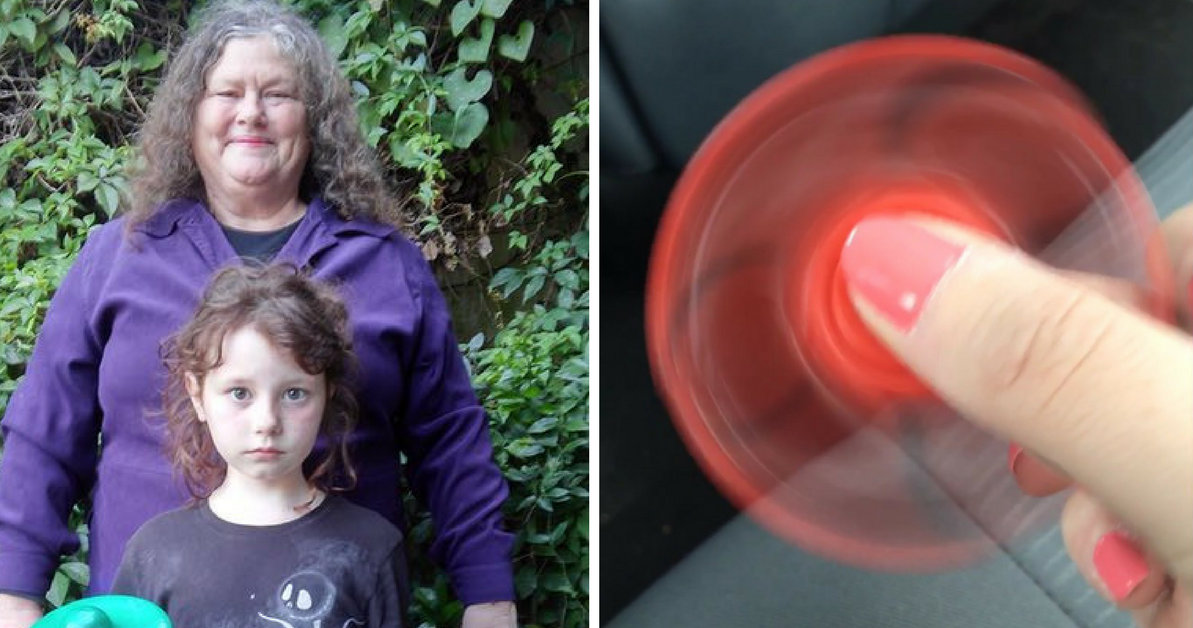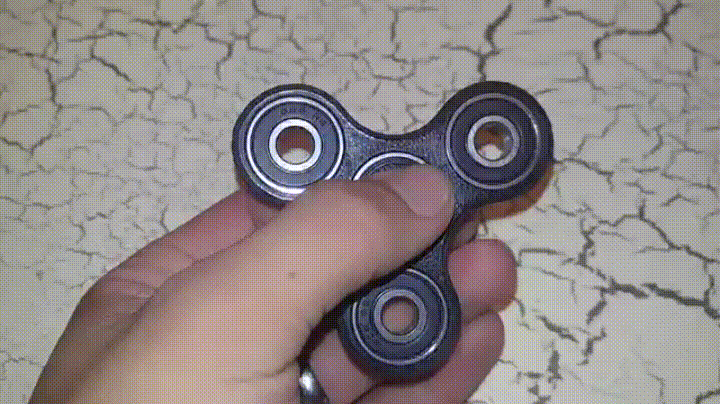You've probably seen a fidget spinner by now, right? It's a small toy that pretty much every kid has now that spins between your fingers. It was originally marketed as a device for people with attention problems and to help them focus, but it quickly became a new trend.
The fidget spinner business has grown like crazy over the last couple months, earning tens of millions of dollars in the process. Suppliers are struggling to meet massive demands, and the toys can go for as much as $300 a pop.
But there's one person who is not benefiting from the increase in popularity. And that's the inventor of the fidget spinner.

Catherine Hettinger, a grandmother from Florida, has not made a dime off her crazy popular invention which she came up with nearly two decades ago. She held the patent for fidget spinners for eight years, until 2005, when she had to surrender it because she could not afford the $400 renewal fee.
"I just didn't have the money. It's very simple," she said.
The patent was then picked up by another company, which then produced them and marketed them, creating a new must-have accessory.
Click-through to find out what Catherine Hettinger has to say about her invention being the most popular toy in the world right now.
While the major companies profit off of Hettinger's invention, the chemical engineer herself is struggling to make ends meet.
She is currently downsizing her home to a condo, she's wondering if it's worth it to reconnect her previously cut-off phone line, and trying to afford a "car that truly works."
But, because there are still good people in the world, Hettinger insists there are no hard feelings between her and what could have been.
"Several people have asked me: "˜Aren't you really mad?' But for me I'm just pleased that something I designed is something that people understand and really works for them," she said.
"It's challenging, being an inventor," Hettinger says. "Only about 3% of inventions make any money. I've watched other inventors mortgage their houses and lose a lot. You take roommates, you get help from friends and family. It is hard."
The idea originally came to Hettinger in the early 1990s, when she was suffering from an auto-immune disorder which causes muscle weakness. She also was caring for her 3-year-old daughter and wanted to do things with her, but it was difficult.
"I couldn't pick up her toys or play with her much at all, so I started throwing things together with newspaper and tape then other stuff," she said. "It wasn't really even prototyping, it was some semblance of something, she'd start playing with it in a different way, I'd repurpose it."
But still, Catherine Hettinger does not feel any ill-will towards the multi-million empire fidget spinners have become. She is still working engineering jobs to earn an income and she says she doesn't have any regrets about letting the patent lapse.
"I would probably be doing more inventing," she said.


